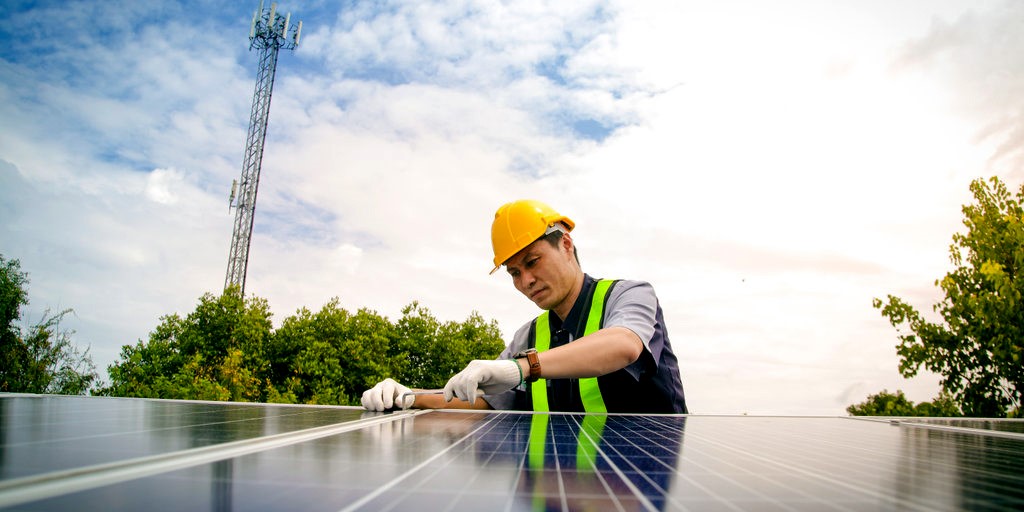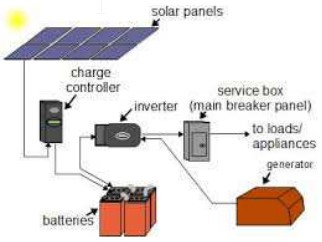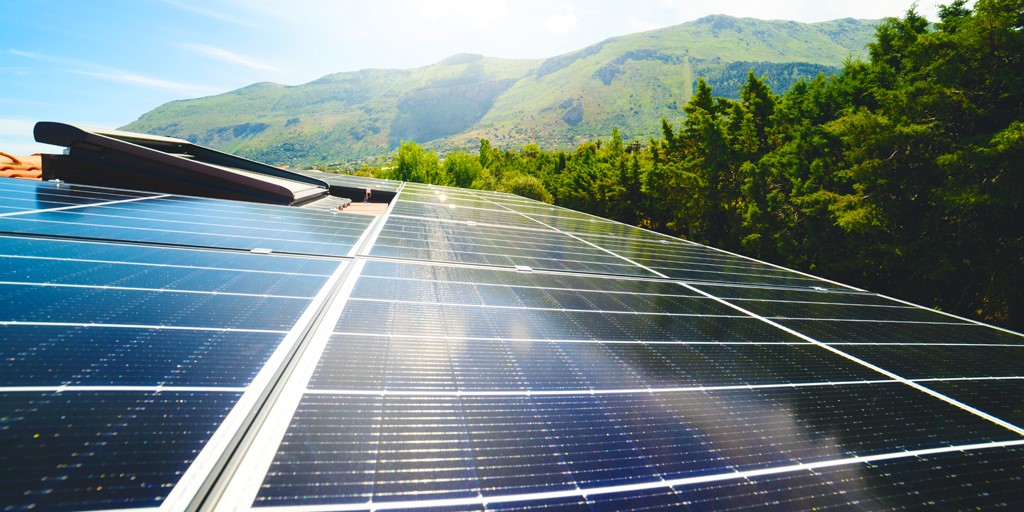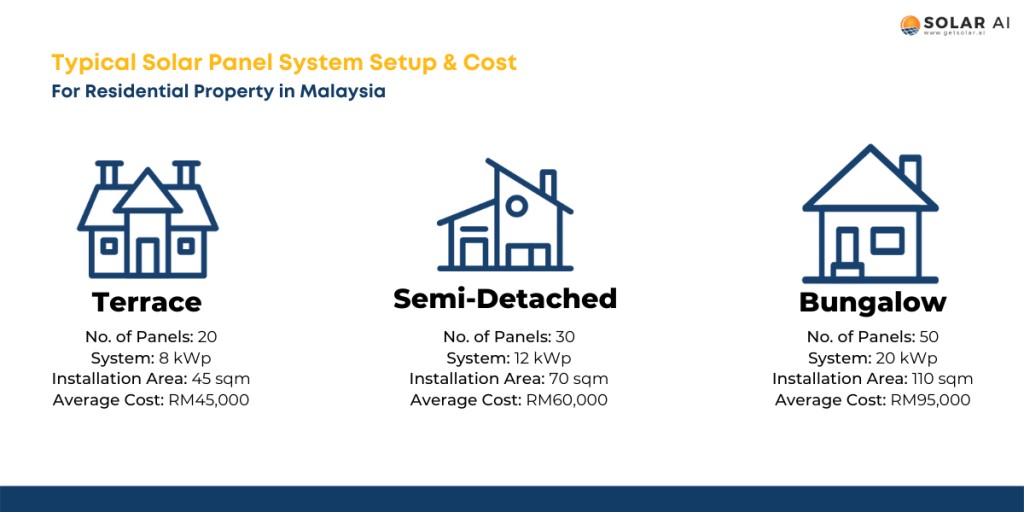
Things you should consider before installing solar panels on your home
For almost one and a half centuries, humans have been relying on fossil fuels for up 80% of the world’s energy. (Environmental & Energy Study Institute, 2020) In the name of industrialisation and development, we have taken things for granted and caused irreversible damage to the environment.
The search for a new sustainable energy source has led us to discover wind energy, geothermal energy, hydro, and solar energy. A study by the New Jersey Institute of Technology, in 2015, wind energy is the most efficient form of renewable energy at (1,164%), geothermal energy (514%), hydroelectric energy (317%), and solar energy at (207%).
Despite the lower efficiency, solar energy is the best option for commercial adoption. The reason being solar energy is available all across the surface of the Earth, with little to no limitation to its topography.

How does solar energy work?
In ancient times, humans have been utilising solar energy for various purposes. One is a unique building that stores heat during the day and keeps the indoors warm at night time. It wasn’t until 1839 a French physicist, Edmond Becquerel discovered a phenomenon known as photovoltaic. Photovoltaic is the direct conversion of light into electricity at the atomic level. Combined with Einstein’s understanding of the photoelectric effect in later years, solar cells were introduced as the first practical application of the photovoltaic phenomenon.
Today, photovoltaic cells have been widely used to make solar panels. These solar cells were first adopted as a renewable energy source for satellites, and eventually, it has been introduced to industrial and household applications. However, to date, the cost of installing solar panels remains high, and the efficiency is still capped at 25% – 35%. (The Belize Times, 2018) However, tech leaders like Tesla have popularised the technology by introducing their renowned Solar Roof despite the cost.


Before you buy
i) It is a long-term investment.
Here are some considerations that you need to know before deciding to install a solar panel system on your home.
With the working-from-home becoming the new work culture, receiving a much bigger electricity bill is inevitable at the end of every month. If you think that investing in a solar system can help you beat bills and rates inflation, you might want to reconsider.
An average household in Malaysia consumes 345kWh a month, based on research by UTM in 2021. Considering that Malaysia’s common solar panel system can generate 5kWh a day on average, you will be saving up to 150 kWh a month. (estimation 56.5% saving) Based on Tenaga National tariff, that is about RM98.78 saved every month. It will cost at least RM15,000 (up to RM60,000) to install a solar energy system at home at the current market price.
(RM15,000 ÷ RM98.78 ÷ 12month/year = 12 Years & 8 months)
It is estimated that the saving from the bills will take at least 12 years & 8 months to reach the breakeven for the installation cost. So, think again if you will be committing to living in the same house for the foreseeable future.
ii) Your house might not be suited for installation
As tempting as it sounds to be living in a more sustainable home, you might not be able to install solar panels due to the structure of your roof.
Solar panels work best with sturdy roofing materials, such as composite or asphalt shingle, concrete tile or standing seam metal. A relatively more robust material will provide enough support for the weight of all the solar panels and their bulky mounting on your roof. Depending on the shape of your roof, scaffolding may be required during installation, which will affect the overall cost.

Aside from that, the size of the system may vary depending on your house type. In short, the bigger is your house, the more solar panels will be required to generate sufficient energy and hence the higher is the cost. It is also important to note that if your home is often shaded by trees or surrounding tall buildings, it affects the overall efficiency of your solar energy system.
iii) Maintenance cost
According to a study by Solar Ai, an industry expert in Singapore, standard solar panels comes with a 25-30 years warranty. However, that doesn’t extend to the inverter, which requires replacement once every 5 to 10 years.
Most of the solar energy provider covers general maintenance within the contract when it comes to maintenance. You will be only be charged should there be any check-up required or ad-hoc maintenance due to unforeseen circumstances. The standard rate for an unscheduled check-up range could range from RM200 to RM800 per visit in Malaysia. In contrast, most providers execute their routine check-ups once every 3-5 years, free of charge. It is still recommended to do an annual check-up for best efficiency.

Buy, Only If(s)
1. You foresee to be living in the same place for a long time.
2. Your current energy usage is high.
3. You are okay with the regular maintenance routines.
4. Your roof has optimal conditions for sunlight collection.
5. You want to reduce your daily carbon footprint.
Summary
Solar energy is still an excellent addition to your home. At the current stage, less than 1% of houses are utilising solar energy. Given a few years, as technology and market mature, the implementation of solar panels would eventually increase the real estate pricing as green energy will be the go-to option globally.
References
4 types of Solar System in Malaysia that actually work. PITECH. (2020, April 28). Retrieved February 23, 2022, from https://pitech.com.my/types-of-solar-system-in-malaysia/
Fossil fuels. EESI. (n.d.). Retrieved February 23, 2022, from https://www.eesi.org/topics/fossil-fuels/description
Jakhongir Turakul Ugli, T. (2019). The importance of alternative solar energy sources and the advantages and disadvantages of using solar panels in this process. American Journal of Software Engineering and Applications, 8(1), 32. https://doi.org/10.11648/j.ajsea.20190801.14
Marsh, J. (2022, February 14). Solar Energy Pros and Cons: The top benefits/drawbacks: EnergySage. Solar News. Retrieved February 23, 2022, from https://news.energysage.com/advantages-and-disadvantages-of-solar-energy/
Pedro, V. (2018, April 22). Benefits Of Solar Energy For Belize. The Belize Times. Sena, B., Zaki, S. A., Rijal, H. B., Alfredo Ardila-Rey, J., Yusoff, N. M., Yakub, F., Ridwan, M. K., & Muhammad-Sukki, F. (2021). Determinant factors of electricity consumption for a Malaysian household based on a field survey. Sustainability, 13(2), 818. https://doi.org/10.3390/su13020818
Shaikh, M. R. (2017). A review paper on electricity generation from Solar Energy. International Journal for Research in Applied Science and Engineering Technology, V(IX), 1884–1889. https://doi.org/10.22214/ijraset.2017.9272
Solar AI Technologies. (2021, December 6). Solar panel price of installation and maintenance in Malaysia. Solar AI Technologies. Retrieved February 23, 2022, from https://getsolar.ai/blog/solar-panel-installation-maintenance-price-malaysia/
Solar panel in Malaysia: Should you install this for your … (n.d.). Retrieved February 23, 2022, from https://www.propertyguru.com.my/property-guides/solar-panel-malaysia-what-you-need-to-know-22910
Suyanto, M., Rusianto, T., & Subandi. (2020). Development of a household solar power plant: System using solar panels. IOP Conference Series: Materials Science and Engineering, 807(1), 012007. https://doi.org/10.1088/1757-899x/807/1/012007
What are the most efficient forms of renewable energy? Born to Engineer. (2019, July 11). Retrieved February 23, 2022, from https://www.borntoengineer.com/efficient-form-renewable-energy
Related Blogs



